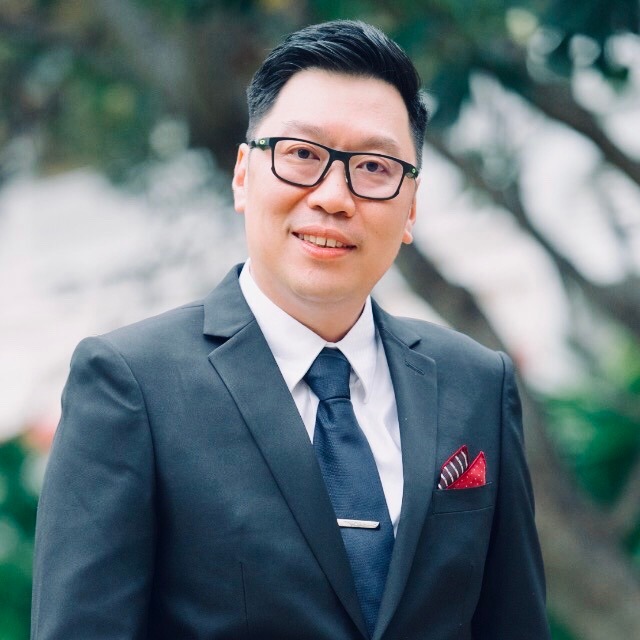
The last two years have been a rollercoaster for people with Alzheimer’s Disease (AD) and their families. The pandemic has had an impact on all of our lives, but for people living with AD and other types of dementia, the impact has been enormous. Cancelled appointments, a global “stay home” narrative, prolonged social isolation and a controversial drug approval means patients and caregivers have so much more to process and understand, under incredibly difficult circumstances. As an agency driven by a desire to improve healthcare outcomes for patients through thoughtful, insightful campaigns, this struck a chord with us.
In October, in recognition of World Alzheimer’s month, Spurwing joined our client Cerecin, a Singapore headquartered biopharmaceutical company developing ketogenic drugs for neurological diseases, and Dementia Singapore, in the annual Walk 2 Remember, clocking an impressive 851 million steps for Alzheimer’s Disease. Spurwing collaborated with Stanley Ho, Dementia Singapore’s Director of Advocacy and Communications on social media activities to help spread the word and to get people moving.
COVID has undoubtedly made life more challenging for elderly people, especially those who live with dementia. In Singapore, residents of care homes are currently restricted from seeing loved ones after a visitation ban was brought in to protect their health. These heightened measures have been confusing for people with cognitive impairment, who wonder why loved ones are no longer stopping by. Spurwing rallied behind this year’s cause with enthusiasm, in recognition of this year being one of the most challenging these patients have endured.
Constant changes in rules here can feel like two steps forward and three steps back, but for an elderly person with cognitive impairment or AD, three steps backward can be felt far more literally. A reduction in social support and the loss of routine, combined with chronic loneliness, can have a significant impact on memory function.
The pandemic, combined with a challenging local landscape of low dementia awareness and high levels of stigma surrounding diseases that impact memory and cognition (particularly amongst people who have no connection to dementia), means there is work to be done in transforming Singapore, with its rapidly ageing population, into a dementia inclusive society. With this, comes a significant need for powerful, conscientious communications towards patients and their caregivers who need to hear from a trusted voice more than ever.
Dementia Singapore, (previously Alzheimer’s Disease Association) has been working hard to realise a nation-wide vision of innovation, advocacy and empowerment for people living with dementia. This is something Spurwing believes wholeheartedly in, as an agency of healthcare specialists who are here to motivate the people that matter.
There are real challenges to building a dementia inclusive society under Singapore’s current circumstances, and before the pandemic, Dementia Singapore’s golden days of community outreach existed across a spectrum of fun, in-person activities that engaged community partners, members of the public and most importantly, seniors with dementia.
Stanley Ho, Director of Advocacy and Communications at Dementia Singapore fondly remembers times before Covid-19. “Before the pandemic, we aimed to build a dementia-friendly society through community-up efforts and large-scale awareness talks, such as those held at places of worship, in businesses and schools, roadshows and art exhibitions.”
Despite a pivot to virtual engagement methods, not everyone finds a move to digital care so easy. This is an important reminder of the added burden of Covid-19 on seniors who aren’t so adept with digital technology, but also of the digital fatigue felt by other age groups who operate in the advocacy industry, which is heavily reliant on meeting and forming relationships with people in person. As communicators, striking the right balance between the two mediums in a period of heightened restrictions is challenging, but can be key to motivating your stakeholders.
“With safe management measures in place and reduced capacity at events, we face difficulties reaching out to the public as effectively as before. In-person events had to go virtual, like our regular awareness talks, webinars, panel discussions, Caregiver Support Groups, and dementia care training workshops.”
Other than logistical challenges, there can be significant consequences to moving engagement efforts online, for both patients and the humans behind the advocacy organisations, who derive happiness and fulfillment from helping others.
“Without the easy access to these events or a straight-forward process to create online materials, people only seek us out when their loved one is suspected to have dementia or has already been diagnosed, causing us to lose out on other audiences who could really benefit from dementia education. This reduction in the human element and interaction from CSR activities and volunteering also poses a challenge – the loss of that “do good” feeling can cause the public to have reduced emotional connections to people with dementia, and sadly to the dementia-inclusive cause.”
There are positives to digital transformation, and virtual up-skilling can still be empowering, especially in tandem with in-person outreach methods. Dementia Singapore has launched Singapore’s first and only one-stop dementia resource hub, a portal that houses resources for patients and caregivers, as well as businesses who are aiming to be more dementia-inclusive.
“As a social service agency operating in an important sector of our community, we can continue to up-skill ourselves in digital care, making better use of virtual or social media platforms like Zoom, Facebook/YouTube Live, TikTok, Microsoft Teams, augmented or virtual reality. But, I truly can’t wait for the day where Dementia Singapore can engage freely with our communities and feel the connection of being in the same room together. ”
And as communicators, we also need to adapt if we wish to keep up with the transition, and importantly, to be able to better support organisations making a shift to hybrid or virtual.
At Spurwing, we are experts in healthcare and passionate believers in patient-centricity. Get in touch with us to learn how we can assist you in engaging your patient audiences and building your reputation amongst the people that matter.
https://afscenter.org/the-impact-social-isolation-has-on-dementia-patients/
https://www.aarp.org/health/brain-health/info-2020/pandemic-isolation-memory-loss.html
https://dementia.org.sg/wp-content/uploads/2021/08/DSG-Business-Toolkit-for-a-Dementia-Inclusive-Singapore.pdf





